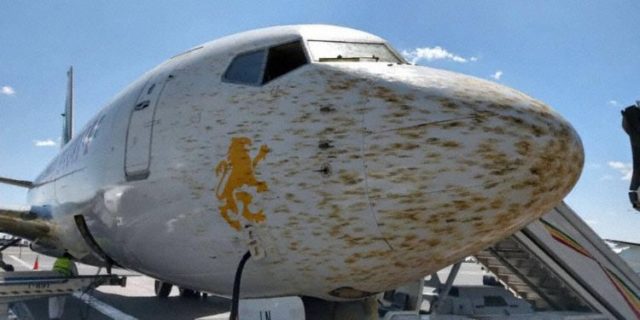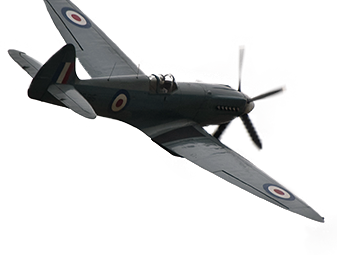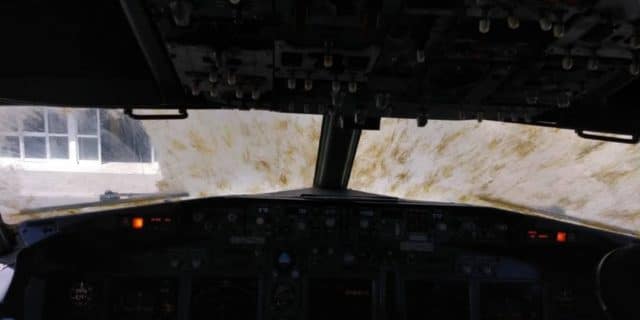A Plague of Locusts
On the 9th of January 2020, Ethiopian Airlines flight 363 was on approach to Dire Dawa Airport. The aircraft was a Boeing B737-700 (registration ET-ALN) on a 30-minute domestic passenger flight from Djibouti to Dire Dawa in Ethiopia.

It should have been routine; however January 2020 was the start of what has turned out to be the worst locust infestation in the region in twenty-five years, destroying crops and bankrupting farming communities. The swarming grasshoppers started in Yemen where the civil war made it impossible to control the breeding and them at the source. The combination of extremely large swarms, unusually heavy rains and COVID-19 disruptions has led to a crisis across East Africa.
In the Guardian, How war threatens Ethiopia’s struggle against worst locust swarm in 25 years gives more details of the insect invasion and the political ramifications. But for the moment, I’d like to return to January, when the struggle against the pests was just beginning.
The Boeing 737 was descending on a normal approach to runway 15 when it passed through a large swarm of locusts which completely obscured the flight crew’s view of the runway. The captain later described the impact of the locusts as like rain. The flight crew attempted to use the wipers to clear the windscreen; however the wipers had no effect.
They immediately went around and climbed to 8,500 feet where the captain depressurised the 737 so that he could open the side window and reach out to attempt to clear at least part of the windscreen by hand.
As they approached a second time, they once again ran into the swarm and again found that they could not see through the windscreen at all. The crew broke off the approach and climbed away. This time they admitted defeat and diverted to Addis Ababa, where they landed without incident half an hour later.
The Boeing 737-700 suffered no damage other than being in dire need of a very long hot bath. Just under twelve hours later, the aircraft was back in service.

A few days later, a De Havilland DHC-2 Beaver crashed while spraying pesticide against what was apparently the same swarm of locusts, which had moved into the south of Pakistan. The Department of Plant Protection have been fighting the insects ravaging crops all over Pakistan with “veteran” DHC-2 Beavers which have been modified to carry pesticide.
The crew, a pilot and a flight engineer, appear to have suffered a technical fault at low level, causing the aircraft to go out of control. It crashed into the sandy ridge, killing both crew members. The investigation is still in progress.










This must have been a very rare incident, and it is disturbing because I suspect that climate change is at least part of the problem.
It led to the sad loss of two lives, and the destruction of the livelihood of many already desperately poor people.
As for the crew of the Boeing: they did what they could under the circumstances. No flight manual will have any procedure listed about “insect strike”. They acted professionally, witness the outcome.
This issue is not going to go away any time soon.
“Locusts have formed plagues since prehistory. The ancient Egyptians carved them on their tombs and the insects are mentioned in the Iliad, the Mahabharata, the Bible and the Quran.[3] Swarms have devastated crops and been a contributory cause of famines and human migrations.”
https://en.wikipedia.org/wiki/Locust
Of course it won’t “go away” — biology is resilient — but it could be seriously mitigated if the world weren’t … distracted … with other issues.
And yes, the crew showed both improvisational skill (I don’t think I’d care to reach out the front of a 737, even in slow-fly mode) and professional judgment.
True, Mike. If I understand it properly, the weather has a profound influence on the behaviour of these grasshoppers. When they do not swarm, they are relatively harmless. I read an article about it a few months ago. Apparently, after a dry period, rainfall can trigger profound changes, not only in the behaviour of the locusts, but they are changed physically as well. A bit like the insect version of the Incredible Hulk?
And so, the climate, including climate change, may well be connected to the current re-emergence of this Biblical plague. It would be interesting to investigate if there were changes in the weather patterns in those times as well. The old story of Exodus, where Moses leads the Israelites across the Red Sea (or Sea of Reeds?) – could this be related to a particular weather pattern? Some scholars have even suggested that it was caused by a volcanic eruption (Santorini) in the Mediterranean Sea.
Well, as we are now extending this into ancient myths and Biblical stories, why not throw in Icarus as well? After all, with his father Daedalus he was one of the first aviators and the first victim of an air accident. Any accident reports for us on this one, Sylvia?
I’m fairly impressed that the turbines didn’t mind ingesting what must have been a phenomenal number of bugs.
Perhaps that’s an eradication trick – just fly a 737 through the swarm for awhile… J.
The aircraft industry could branch out into turbine-powered fly swatters after the pandemic?
Good ones! Get a few old B737s and fly them through locust swarms.
Maybe a retrofit with windscreen washers to retain visibility?
The dead insects would probably do less damage than abrasion from atmospheric dust, either from desert sand or of volcanic origin. The organic matter would have been burned to a cinder, even in the air that bypasses the hot core of the engines because the rate of compression raises the temperature very considerably. Since the bleed air also provides air for the cabin, I wonder if the cremated locusts would have caused a smell. But a good hosing-down – with an approved method of course – would have cleaned the compressor section of the engines, including the guide vanes. I doubt that it would have affected the burner cans.